38 label the replication fork
DNA Replication Quiz Questions And Answers - ProProfs Quiz Here's an interesting 'DNA replication quiz' that is designed to test your knowledge about the DNA replication process. Think you know everything about the term DNA replication? If you have studied molecular biology, you might have some idea or an even deeper knowledge of this process. It's a process of a single DNA molecule producing its two replicas. Well, here in this quiz, we will ask you ... › copy-of-dna-replication-labeling-1 › 13053725Copy of DNA Replication - Labeling 1 - Name - StuDocu Copy of DNA Replication - Labeling 1 Is a Dna replication diagram worksheet University Clark University Course Developmental Biology (Biol 221) Academic year:2021/2022 Uploaded byAzanna Helpful? 10620 Comments Please sign inor registerto post comments. Students also viewed Multi Collinearity Week 12 Heteroskedasticity Auto Correlation
wou.edu › chapter-9-dna-replication-and-repair-2Chapter 9: DNA Replication - Chemistry - Western Oregon... Figure 9.4 General Overview of a DNA Replication Fork. At the origin of replication, topoisomerase II relaxes the supercoiled chromosome. Two replication forks are formed by the opening of the double-stranded DNA at the origin, and helicase separates the DNA strands, which are coated by single-stranded binding proteins to keep the strands ...
Label the replication fork
Draw a labelled diagram of replicating fork. - Toppr Ask DNA replicates in a semi-conservative manner in which each individual strand is copied to form a new molecule of DNA. The two strands can be labelled with isotopes using substrates that contain either normal 1 4 N or its heavy isotope 1 5 N.In an experiment, one strand of DNA was labelled with 1 4 N and the other with 1 5 N (hybrid DNA). The hybrid DNA was then allowed to replicate in the ... Genetics: Chapter 12 HW Flashcards | Quizlet In the replication fork, label the leading and lagging strands and the 5′5′ and 3′3′ ends of the DNA and RNA molecules. The 5′5′ and 3′3′ labels are used multiple times. Leading: Moves in 3' to 5' direction yet DNA is SYNTHESIZED in the 5' to 3' direction Lagging: Moves in 5' to 3' yet DNA is SYNTHESIZED in the 3' to 5' direction study.com › learn › lessonDNA Replication Fork Overview & Function - Study.com Jan 12, 2022 · A replication DNA fork is defined as a Y-shaped region where the parent DNA double helix splits into two strands, subsequently copied. Since two replication forks are formed at the replication ...
Label the replication fork. (a) Draw a labelled diagram of a "replicating fork" showing the ... High amount of energy is required to break the hydrogen bonds holding the two strands. Therefore, the replication occurs in small opening of DNA strands called the replication fork. (b) i. DNA dependent DNA polymerase: adds nucleotides only in 5 to 3 directions. ii. DNA ligase: joins the discontinuously synthesised DNA fragments during replication. Replication Fork Quiz - PurposeGames.com "The replication fork is a structure that forms within the nucleus during DNA replication. It is created by helicases, which break the hydrogen bonds holding the two DNA strands together." - Wikipedia Remaining 0 Correct 0 Wrong 0 Press play! 0% 0:00.0 Show More Other Games of Interest The Parts and Functions of the Brain Science English Creator Draw a labelled diagram of replicating fork. - toppr.com DNA replicates in a semi-conservative manner in which each individual strand is copied to form a new molecule of DNA. The two strands can be labelled with isotopes using substrates that contain either normal 1 4 N or its heavy isotope 1 5 N.In an experiment, one strand of DNA was labelled with 1 4 N and the other with 1 5 N (hybrid DNA). The hybrid DNA was then allowed to replicate in the ... The Initiation and Completion of DNA Replication in Chromosomes Bacterial Chromosomes Have a Single Origin of DNA Replication. The genome of E. coli is contained in a single circular DNA molecule of 4.6 × 10 6 nucleotide pairs. DNA replication begins at a single origin of replication, and the two replication forks assembled there proceed (at approximately 500-1000 nucleotides per second) in opposite directions until they meet up roughly halfway around ...
› dna › dna-replication-processDNA Replication (With Diagram) | Molecular Biology Let us make an in-depth study of the DNA replication:- Learn about: 1. Basic Features of DNA Replication 2. Mechanism of DNA Replication 3. Meselson and Stahl Experiment 4. Enzymes of DNA Replication 5. Formation of Replication Forks & Replication Bubbles and Others. Central Dogma: Solved Label the parts of the DNA replication fork. DNA | Chegg.com Label the parts of the DNA replication fork. DNA helicase Okazaki fragment Open beta clamp DNA ligase DNA polymerase III Leading strand Closed beta clamp RNA primer DNA primase Single-strand binding proteins DNA gyrase Clamp loader DNA polymerase I Parent DNA This problem has been solved! › books › NBK26850DNA Replication Mechanisms - Molecular Biology of the Cell - NCBI... Initially, the simplest mechanism of DNA replication seemed to be the continuous growth of both new strands, nucleotide by nucleotide, at the replication fork as it moves from one end of a DNA molecule to the other. But because of the antiparallel orientation of the two DNA strands in the DNA double helix (see Figure 5-2), this mechanism would require one daughter strand to polymerize in the 5 ... DNA Replication Steps and Process - ThoughtCo A replication fork is formed which serves as a template for replication. Primers bind to the DNA and DNA polymerases add new nucleotide sequences in the 5′ to 3′ direction. This addition is continuous in the leading strand and fragmented in the lagging strand.
In the replication fork, label the leading and lagging strands and the ... In the replication fork, DNA synthesis occurs, in leading and lagging strand. Leading: Although DNA is synthesized in the 5' to 3' direction, it moves in the 3' to 5' way.. Lagging: DNA is synthesized in the 3' to 5' direction, yet it moves in the 5' to 3' direction.. DNA Synthesis- A macromolecule known as DNA is composed of repeated nucleotide units joined together by covalent and hydrogen ... Replication Fork | Science Primer The replication fork * is a region where a cell's DNA * double helix has been unwound and separated to create an area where DNA polymerases and the other enzymes involved can use each strand as a template to synthesize a new double helix. DNA Base RNA Base An enzyme called a helicase * catalyzes strand separation. DNA Replication - Labeling worksheet with image - Name - StuDocu DNA Replication - Labeling (with word bank) DNA polymerase 3' 5' DNA Ligase Okazaki fragment DNA Primase ... ____ DNA polymerase adds nucleotides in the 5' to 3' direction ____ Replication fork is formed ____ DNA polymerase attaches to the primer ____ Okazaki fragments are bound together by ligase ____ DNA helicase unwinds DNA. Draw a labeled diagram of a replicating fork. - Vedantu Hint: Replicating fork is the structure of the DNA double helix after the unzipping by ligase enzyme. This leads to two strands called leading and lagging strands. Complete answer: DNA replication is the process of duplication of DNA during cell division.
DNA replication fork speed underlies cell fate changes and ... - Nature As the molecular properties of the replication fork are central to the regulation of replication 5, we set out to investigate replication fork dynamics in totipotent cells in vivo and...
DNA Replication Fork Quiz - PurposeGames.com DNA Replication Fork — Quiz Information. This is an online quiz called DNA Replication Fork. There is a printable worksheet available for download here so you can take the quiz with pen and paper. Popular Today. 3D shapes.
DNA structure and replication review (article) | Khan Academy The replication fork is the branched (forked) DNA at either end of the replication bubble. The replication complex is the group of proteins that help synthesize the new DNA strands. A replication unit is any chunk of DNA that is capable of being replicated — e.g. a plasmid with an origin of replication (ORI) is a replication unit.
Replication Fork, Fork Protection Complex | Learn Science at Scitable Figure 1: Replication fork components The RF is a multiprotein complex with helicase and DNA synthesis activities. It is called a fork because the structure resembles a two-pronged fork....
Replication Fork: Definition, Structure, Diagram, & Function The replication fork is a structure which is formed during the process of DNA replication. It is activated by helicases, which helps in breaking the hydrogen bonds, and holds the two strands of the helix. The resulting structure has two branching's which is known as prongs, where each one is made up of single strand of DNA.
Difference Between Replication Bubble and Replication Fork To prevent the stalling of the replication fork, there is a special protein complex known as replication fork protection complex. The major function of this complex is to re-stabilize if the replication fork is stalled due to any reason and it involves in the coordination of the synthesis of leading and lagging strands and also in replication checkpoint signalling.
› question-bank-solutions › draw-neat-and-labelled-diagram-ofDraw neat and labelled diagram of Replication Fork. - Biology Draw neat and labelled diagram of Replication Fork. Advertisement Remove all ads Solution Concept: DNA Replication Is there an error in this question or solution? Advertisement Remove all ads Chapter 4: Molecular Basis of Inheritance - Short Answer 1 Q 10 Q 9 Q 1 APPEARS IN
DNA Replication and Repair: DNA Replication | SparkNotes The replication origin forms a Y shape, and is called a replication fork. The replication fork moves down the DNA strand, usually from an internal location to the strand's end. The result is that every replication fork has a twin replication fork, moving in the opposite direction from that same internal location to the strand's opposite end.
Solved The image shows a replication fork, template DNA - Chegg Label the image by moving the terms to the apropriate targets. Not all terms will be used. Show transcribed image text Expert Answer 98% (83 ratings) Transcribed image text: The image shows a replication fork, template DNA strands, and new DNA strands. Label the image by moving the terms to the apropriate targets. Not all terms will be used.
DNA Replication Fork: Definition & Overview - Study.com The replication fork is the area where the replication of DNA will actually take place. There are two strands of DNA that are exposed once the double helix is opened. One strand is referred to...
engineschematicbeahan77.z19.web.core.windows.net › label-diagram-of-dnaLabel Diagram Of Dna Replication The Primary Mechanism Of Dna Replication Is Similar Across All Organisms. Web the replication fork is the branched (forked) dna at either end of the replication bubble. Short segment of dna synthesized discontinuously in small segments in the 3' to 5' direction by dna polymerase. As the beginning point for replication, the.
DNA Replication Labeling Diagram | Quizlet DNA Replication Labeling 4.7 (24 reviews) Flashcards Learn Test Match Created by Kimberly_McGuffie Teacher Terms in this set (11) Term Single Stranded Binding Protein Definition Binds to and stabilizes single-stranded DNA until it can be used as a template. Location Term Helicase Definition
PDF Bio 102 Practice Problems Chromosomes and DNA Replication 1. Below is a replication fork (one side of an origin): a double-stranded DNA partially opened up to provide single-stranded regions where replication can occur. Draw and label the following: RNA primers (label 3′ and 5′ ends), leading-strand DNA polymerase and new DNA (label 3′ and 5′ ends and show direction of synthesis
Molecular mechanism of DNA replication (article) | Khan Academy As the DNA opens, two Y-shaped structures called replication forks are formed, together making up what's called a replication bubble. The replication forks will move in opposite directions as replication proceeds. Diagram based on similar illustration in Reece et al. ^2 2. How does replication actually get going at the forks?
study.com › learn › lessonDNA Replication Fork Overview & Function - Study.com Jan 12, 2022 · A replication DNA fork is defined as a Y-shaped region where the parent DNA double helix splits into two strands, subsequently copied. Since two replication forks are formed at the replication ...
Genetics: Chapter 12 HW Flashcards | Quizlet In the replication fork, label the leading and lagging strands and the 5′5′ and 3′3′ ends of the DNA and RNA molecules. The 5′5′ and 3′3′ labels are used multiple times. Leading: Moves in 3' to 5' direction yet DNA is SYNTHESIZED in the 5' to 3' direction Lagging: Moves in 5' to 3' yet DNA is SYNTHESIZED in the 3' to 5' direction
Draw a labelled diagram of replicating fork. - Toppr Ask DNA replicates in a semi-conservative manner in which each individual strand is copied to form a new molecule of DNA. The two strands can be labelled with isotopes using substrates that contain either normal 1 4 N or its heavy isotope 1 5 N.In an experiment, one strand of DNA was labelled with 1 4 N and the other with 1 5 N (hybrid DNA). The hybrid DNA was then allowed to replicate in the ...



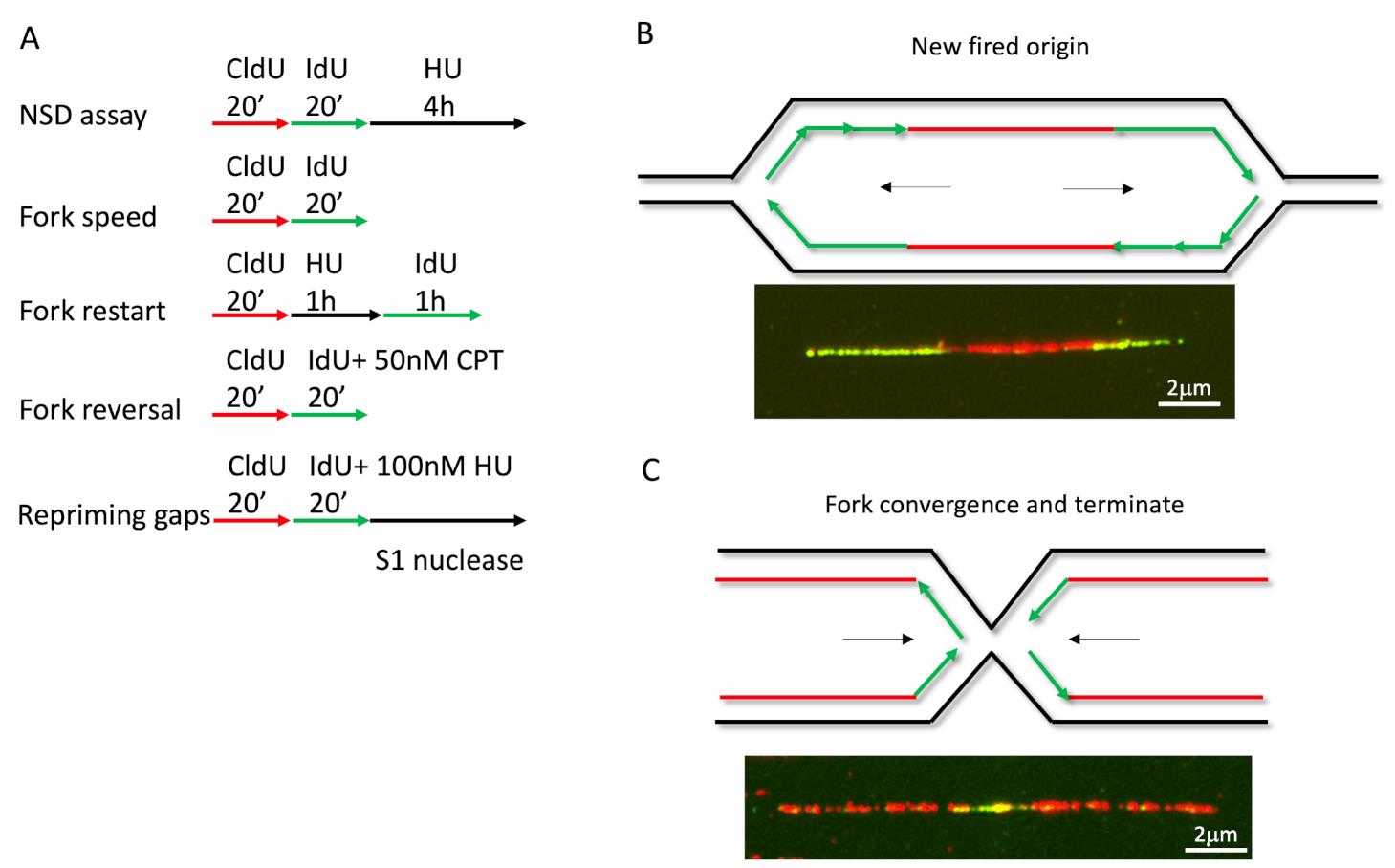


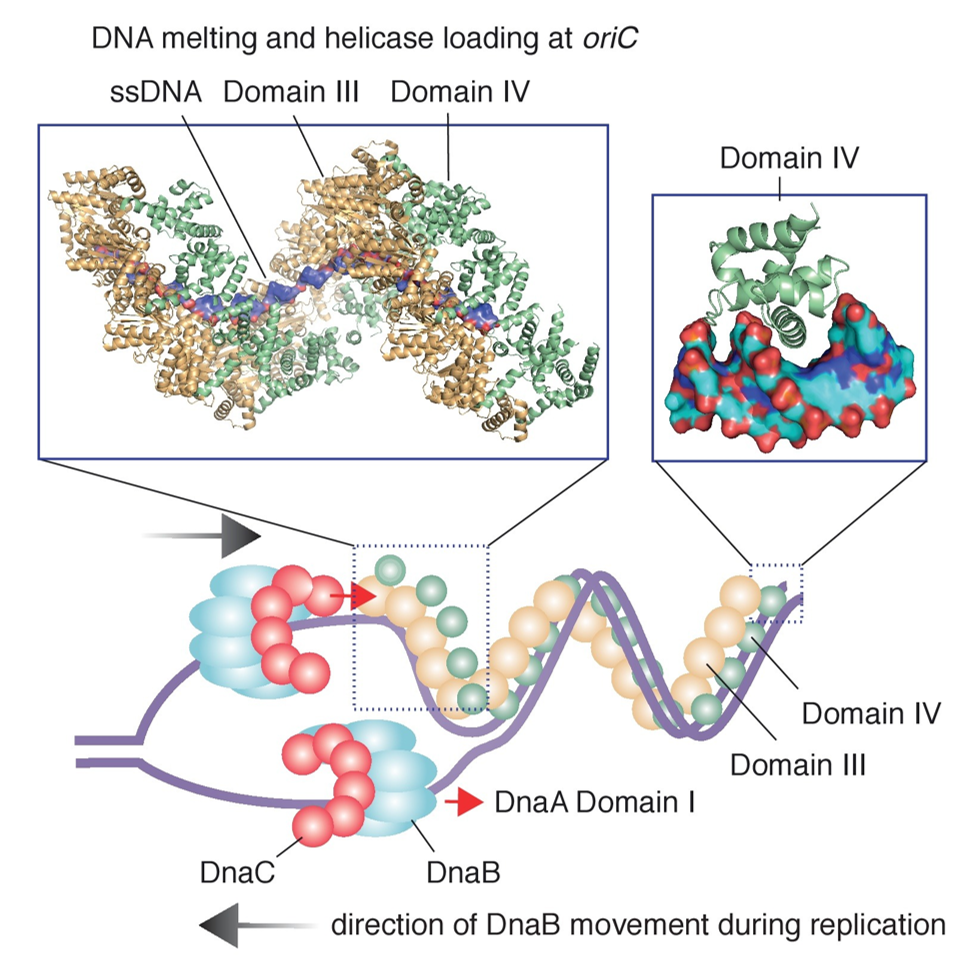

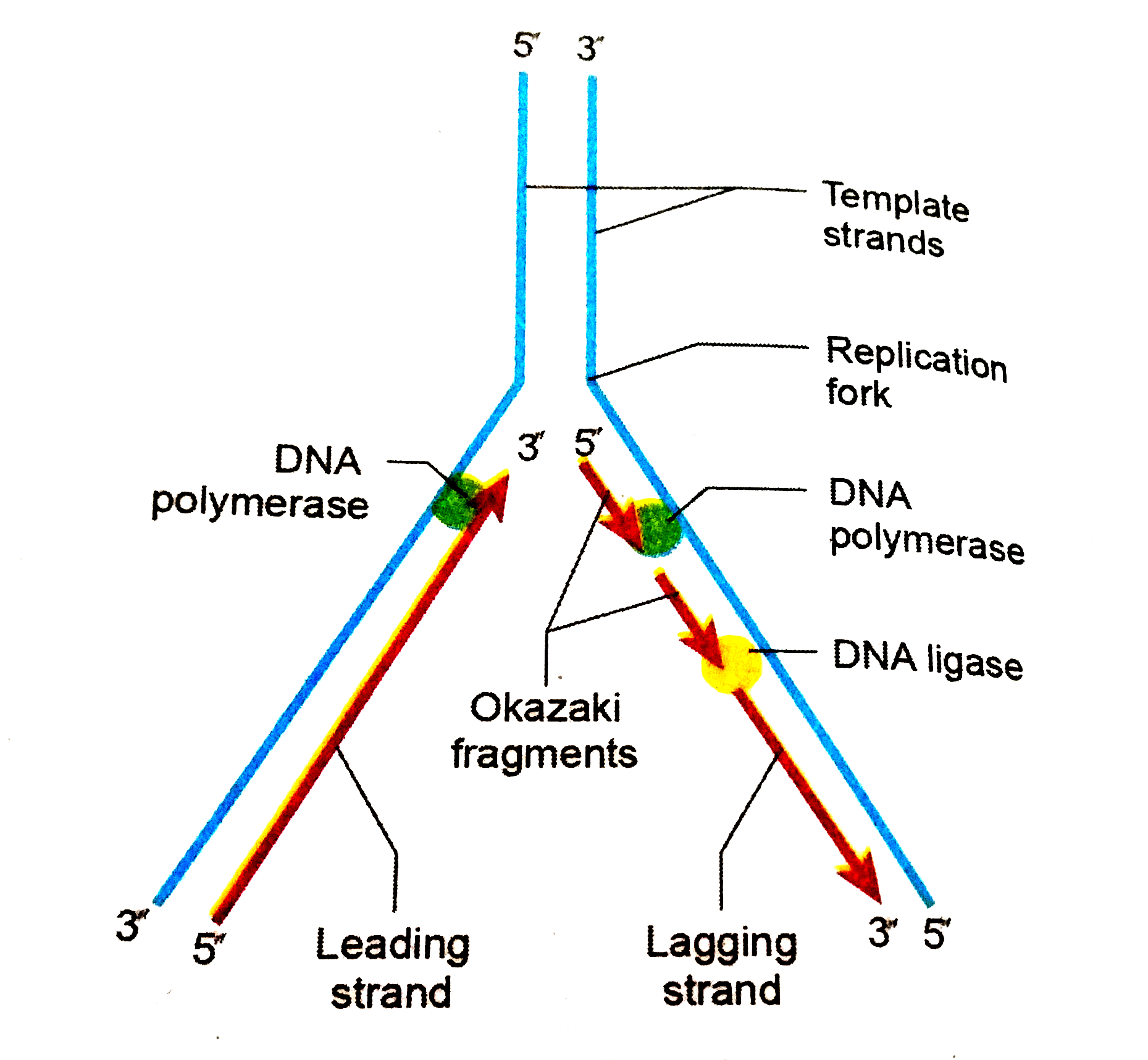





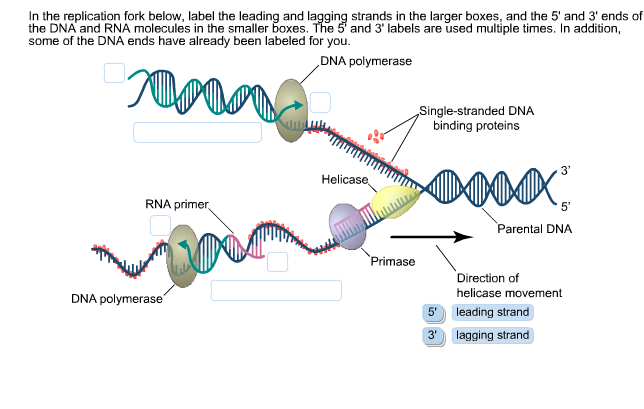


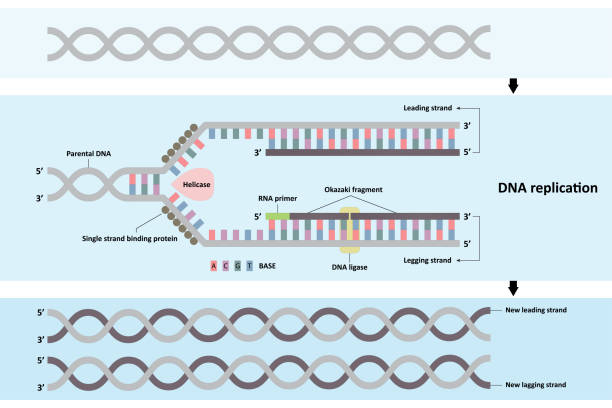

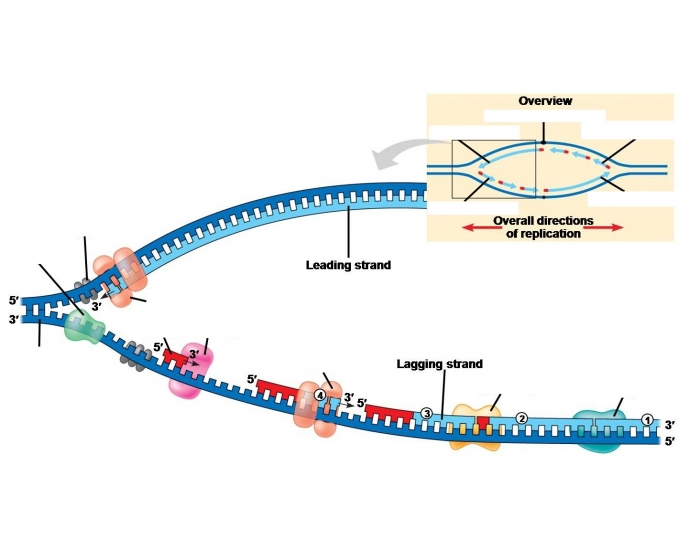





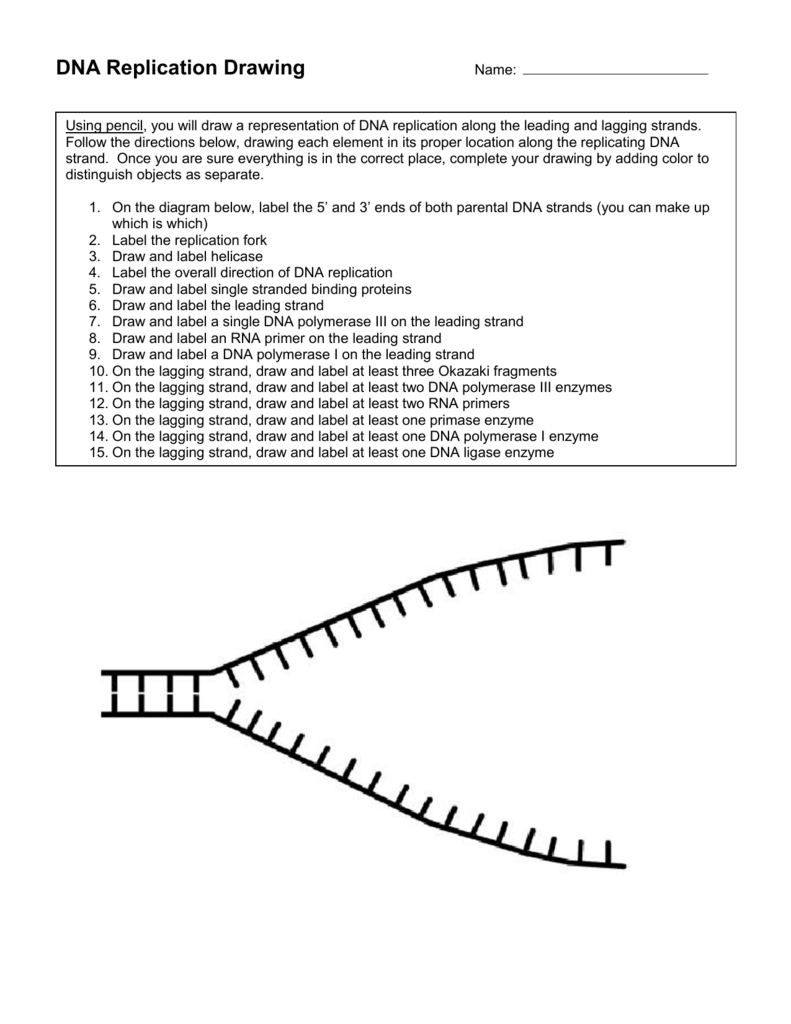



Post a Comment for "38 label the replication fork"